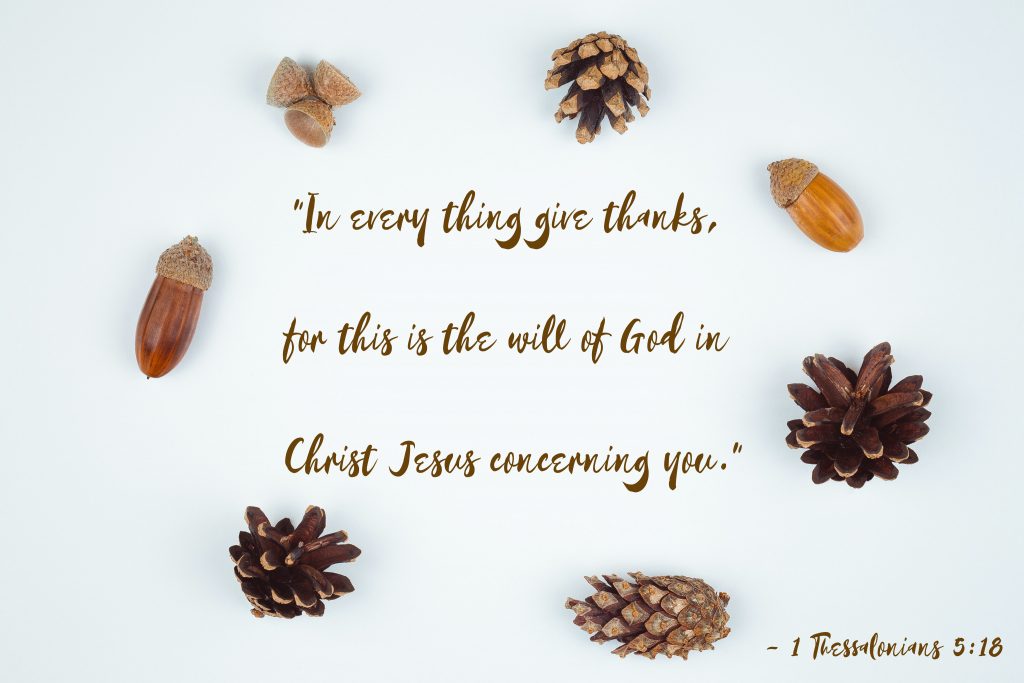Earlier this month, Charleston came home from church with a printout of small illustrations depicting children in everyday scenarios: a young boy opening a birthday present, a family sitting down to dinner, a girl kicking a soccer ball across a field. Without having any context for these pictures, I asked Charleston what was happening in these scenes, and I was surprised by many of his responses.
Some of the descriptions made sense: the girl is happy because she gets to play a game; the boy is excited about his birthday party; the family enjoys spending time together at dinner. Other responses were less expected: the child is sick so he gets to stay home with his mom for the day; the boy got a present that he didn’t want but he is happy because somebody thought of him; the children forgot to bring their lunch to school so their friends get to share with them. After Charleston had walked me through each picture, it dawned on me that the worksheet was meant to be a gratitude lesson, teaching the children to find something to be thankful for in ALL situations, good and bad.

After this year we have all had, Thanksgiving (both the holiday and the practice) may seem like a slap in the face, an insulting magnifying glass to all that is hard about our current situation. Giving thanks in the midst of a holiday that looks different, at the tail end of a year marked by sadness and unease, does not come naturally. But Scripture doesn’t give us a pass on practicing gratitude when times are hard. The Message version of 1 Thessalonians 5:18 exhorts us to “thank God no matter what happens.” Paul addressed these words to persecuted Christians who were no strangers to hardship, but his encouragement to them was not to thank God for the good things while ignoring the bad. No, instead Paul encouraged these new believers to thank God in all things, whatever their fate. This mandate for gratitude detached from circumstance was true for the early church, and it holds true for us now.
Back in January, I claimed Joy as my word for 2020. Not every day of this year has been marked by exuberant happiness as one might normally define “joy”, but I have successfully embraced TRUE joy, defined (thanks to Kay Warren) as “the settled assurance that God is in control of all the details of my life, the quiet confidence that ultimately everything is going to be all right, and the determined choice to praise God in all things.”
A posture of gratefulness has been a vital component of my pursuit of joy. Whenever I find myself on the verge of a depressive spiral, I have made it a habit to stop and thank God for something good, even if the only “good” I can see in the moment is the air in my lungs, or the solid ground beneath my feet, or the knowledge that I have Someone to whom I can give thanks, Someone who is listening and is vested in my prayers. This simple act of obedient thanksgiving never fails to bring me back to the truth of Who God is and the assurance that He is still on the throne, working out all things for my ultimate good.
There will always be seasons when giving thanks come easily, and seasons when exercising our gratitude muscles requires supernatural strength. Perhaps this is why Psalm 50:23 describes thanksgiving as a sacrifice. The psalmist’s words remind us that whatever the circumstances, our sacrifice of praise and gratitude is honoring to God.

This Thanksgiving, as we sit down to our (possibly socially distanced) Thanksgiving feasts, may we recall the numerous blessings for which we have to be grateful—the greatest being a God who sees us, who loves us, and who is for us, even when times are hard. He is deserving of all honor, and it is in Him, for Him, and through Him that are able to give thanks.